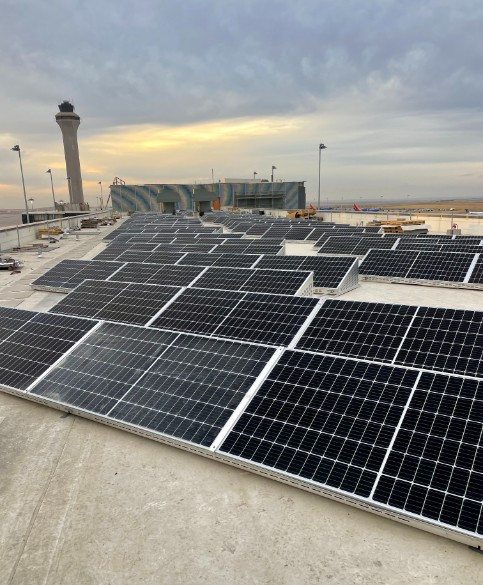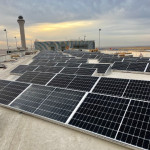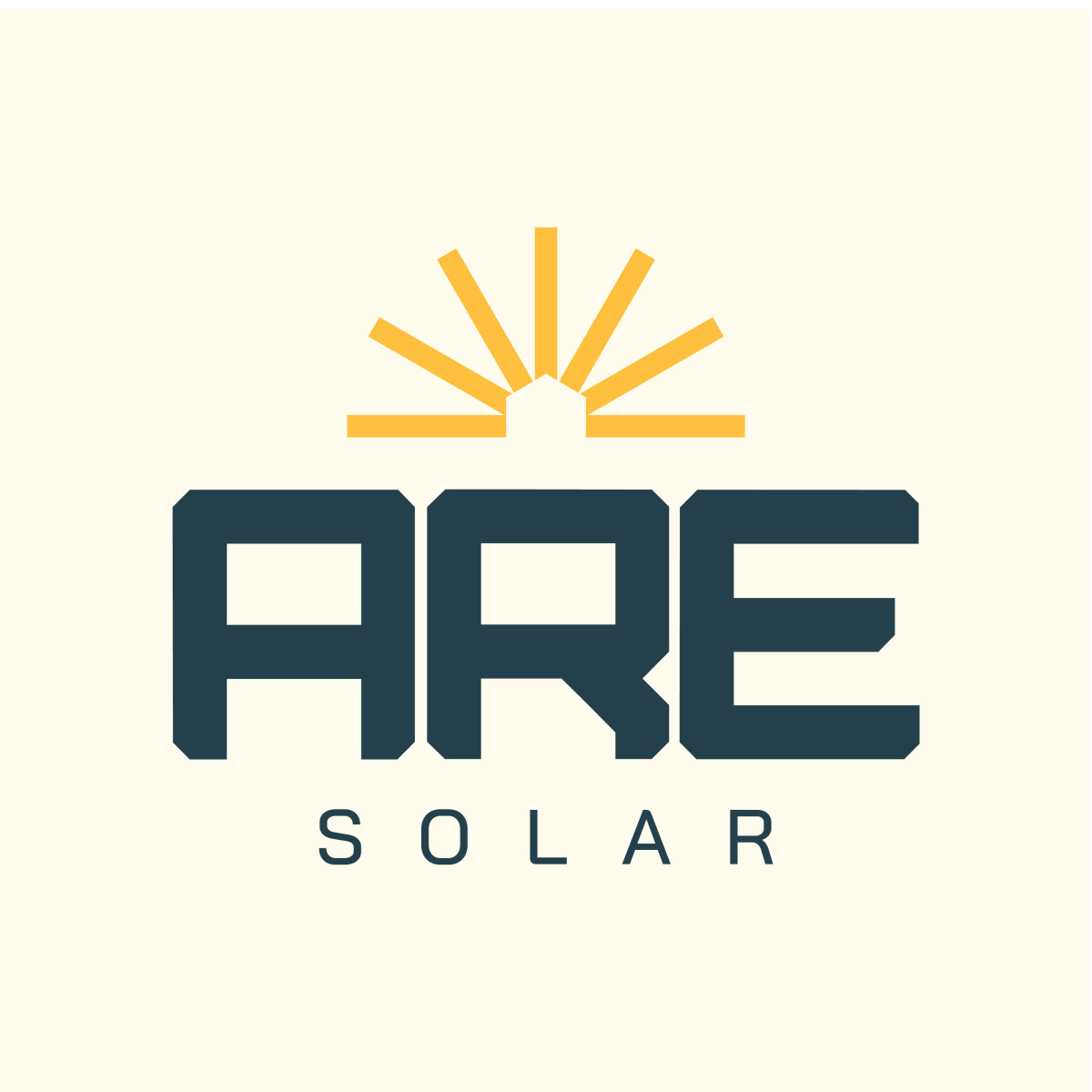ARE Solar, a leading provider of commercial solar panel installation services in Denver, CO, explains how businesses in the area can reduce their carbon footprint. Reducing the amount of carbon dioxide released into the air is an environmentally-conscious option, and it can help businesses cut costs.
How Do Solar Panels Help the Environment?
In the United States, fossil fuels are the most prominent energy source for producing electricity and heat. These fossil fuels include natural gas, coal, and petroleum. Using fossil fuels for energy generation depletes the earth’s natural resources and emits carbon dioxide and other air pollutants.
On the other hand, when a solar panel uses the sun’s light particles, or photons, to generate electricity, it doesn’t emit any pollutants. Additionally, these photons are a free and abundant source of energy. Approximately 173,000 terawatts of solar energy are striking the earth at any given moment, which is 10,000 times the world’s demand for energy.
How Does Solar Installation Reduce a Company’s Carbon Footprint?
Businesses can reduce their carbon footprint by:
- Installing solar panels (directly reduces their carbon footprint).
- Offsetting their carbon emissions indirectly by participating in renewable energy schemes.
With a solar power installation, a business directly negates its carbon footprint by replacing fossil fuel energy with renewable energy. Selling excess solar energy offsets its emissions and reduces a company's carbon footprint. Colorado allows "net metering," a mechanism that lets businesses inject the excess energy from their PV panels into the local utility grid in exchange for credit.
How Long Does Commercial Solar Panel Installation Take?
The installation of a commercial solar PV system generally takes a few weeks, depending on the system size. However, the installation is only one step. When a business decides to switch to solar power, the solar PV provider should:
- Do a physical facility evaluation
- Draft a basic design that indicates the solar PV panel positions
- Conduct a legal project review
- Obtain relevant permissions from the city
- Finalize the construction plan
- Source all solar PV components
- Complete the on-site construction and solar PV installation
- Do a final inspection and provide an ongoing maintenance plan
The entire process of going solar can take a business two to four months. As commercial solar panel installation experts in Denver, the team at ARE Solar follows best practices to streamline the process and save valuable time.
What Is the Lifespan of a Commercial Solar Panel?
A commercial solar PV panel can have a functional life expectancy that ranges from 15 years to 20 years. Businesses can extend the lifespans of their solar arrays by:
- Sticking to a panel cleaning schedule
- Scheduling regular system inspections, especially after inclement weather
- Applying protective coatings to protect the panels’ surface materials
- Protecting solar panels against inclement weather
Choosing high-end panels and using professional commercial solar panel installation services in Denver, CO, are essential to prevent premature deterioration and panel failures.
What Is the Difference Between Residential and Commercial Solar Panels?
Solar PV components do not have residential and commercial designations. Generally, commercial entities have a higher capital outlay than households. Consequently, businesses often opt for more expensive, larger panels with more cells and higher efficiency ratings to support their operations.
For example, passive emitter and rear cell (PERC) PV panels are suitable for residential and commercial settings. However, if a business needs to adhere to weight restrictions, it might consider thin-film panels or solar roof tiles.
Panels for flat-roof installations in commercial settings also require additional mountings, which are usually not necessary for residential installations.
ARE Solar’s Denver Airport Project
ARE Solar offers a wide range of commercial solar panel installation services in Denver. One of ARE Solar’s most recognizable solar system projects is the one at Denver International Airport. The project took two years to complete and involved the installation of 888 solar panels on a ballasted racking system with a 25-degree tilt.
ARE Solar expects the system’s payback period to be less than eight years, with an energy production period of 35 years.
For Additional Information
To learn more about ARE Solar’s commercial solar panel installation services in Denver, CO, contact the company’s president, David B. Waldman, via email at david@AREsolar.com.































